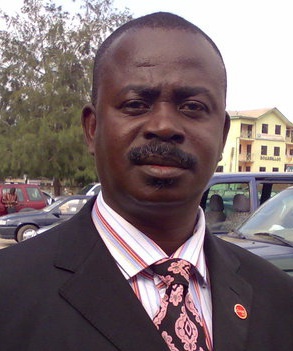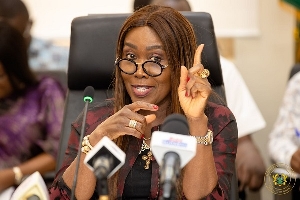Regional News of Monday, 24 November 2014
Source: GNA
Science & Tech education needs backing of all

Mr. Alfred Ekow Gyan, Deputy Western Regional Minister, has urged stakeholders in education to help sustain the interest of children in Science, Technology and Vocational education.
He said children must be well exposed to scientific and technological experiences in order to develop and harness their potentials for national development.
Mr. Gyan made the suggestion at the 105th Speech and Prize-Giving Day of the Ghana Secondary Technical School (GSTS), at Takoradi.
The event was under the theme: “Youth and Development: The Role of Science, Technical and Vocational Education”.
Mr. Gyan said the government was placing strong emphasis on those fields of education as an essential component of basic education.
He said the objective was to ensure that the country’s human resource was fully equipped to play its role in national development.
Mr. Gyan said the theme threw a challenge to all stakeholders, especially those with expertise in Science, Technical and Vocational training to make the teaching of those subjects more interesting and appealing to students.
He asked communities to support education by ensuring that the localities of schools were conducive for learning.
The Reverend Professor Daniel Nyarko, Rector of Takoradi Polytechnic, who was the guest speaker, said no nation in the world had developed without a strong science and technology base.
Unfortunately, he said, Ghana had not been able to fully embrace Science and Technology in the manner that could transform the economic fortunes of the nation.
Rev. Prof. Nyarko said it was important that the Government took Science and Technology education more seriously by providing adequate funding.
He said the dwindling student numbers for those programmes in favour of Business and Arts, coupled with the declining pass rates implied that the country was not training the right numbers for national development.
Rev Prof Nyarko said admissions into Science and Technology institutions at the secondary and tertiary levels had either remained stagnant or dwindled.
He said most of the infrastructure for training this human capital had become outmoded, broken down, or had not been expanded over the years.
“Besides, the cost of training this category of human resource keeps increasing and making it unattractive and unaffordable to the youth,” he noted.
Mr. Hansford Adams, headmaster of GSTS, said the school presented 428 students for the West African Senior Secondary School Certificate Examination (WASSCE) in 2014 out of which 318 students qualified for entry into tertiary institutions.
However, he said the school was facing a myriad of infrastructural problems, mainly as a result of increase in student population from about 450 in the 1970s to 1,894 currently.
Mr. Adams said the classrooms needed massive rehabilitation and the school needed a new block of at least 12 classrooms.
He said some assistance was also required to complete the top floor of the six-classroom block built by the government in 2012.
Mr. Adams said the dining and assembly halls were too small to contain the large student population.
While the teacher population had increased, he said, only a few teachers resided at the school.
He, therefore, appealed to the Parent Teacher Association to consider putting up a block of flats on campus for the teachers.
Entertainment









